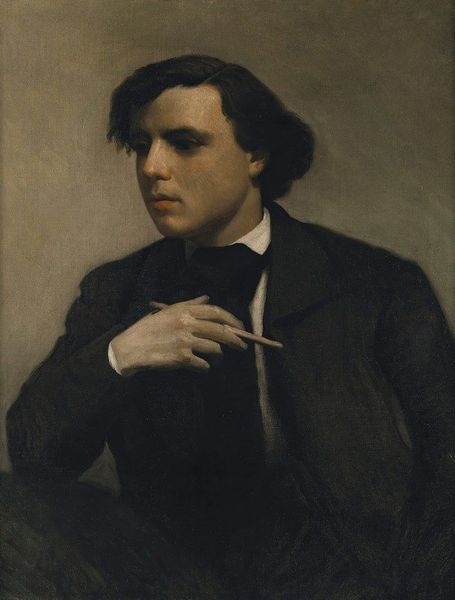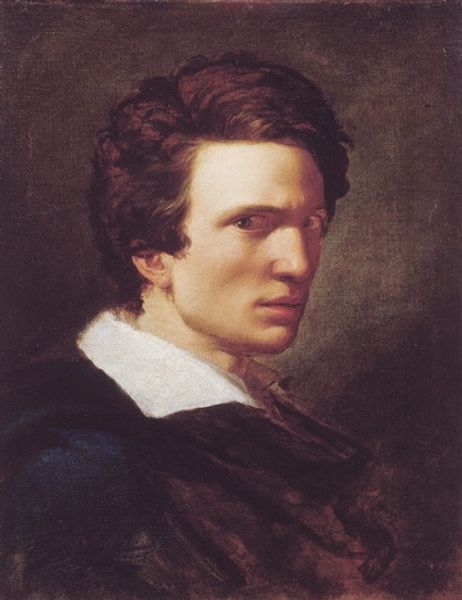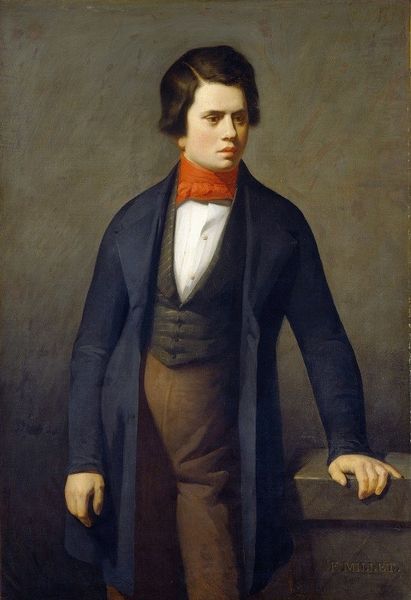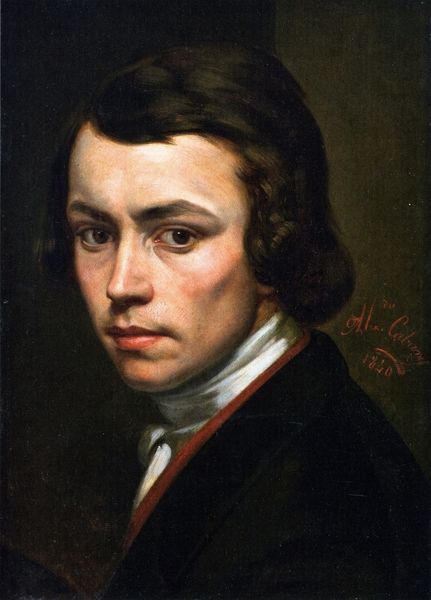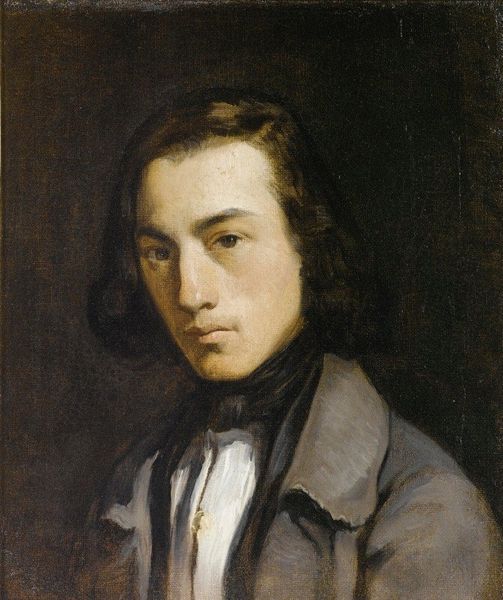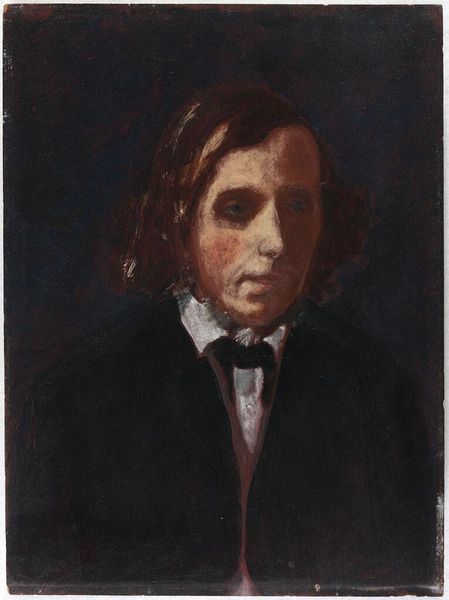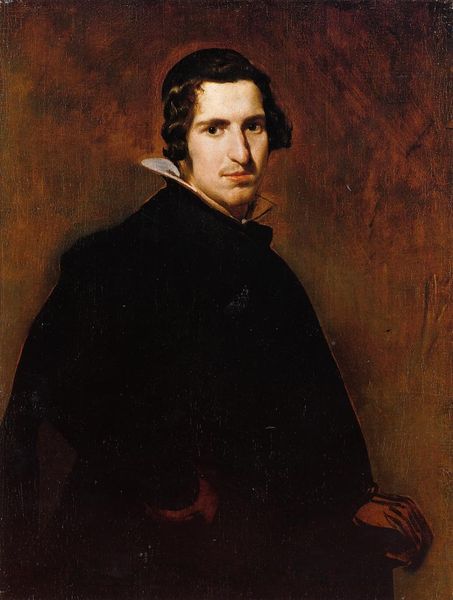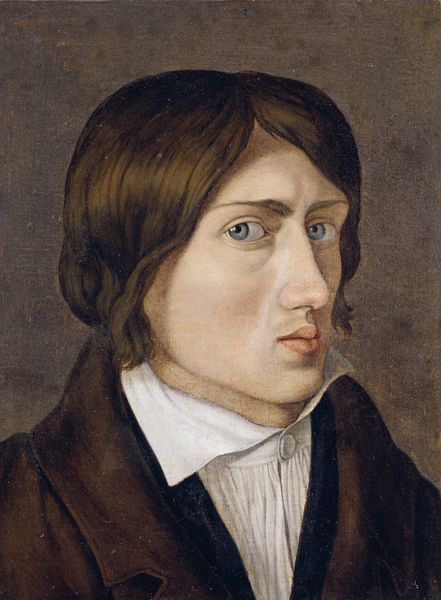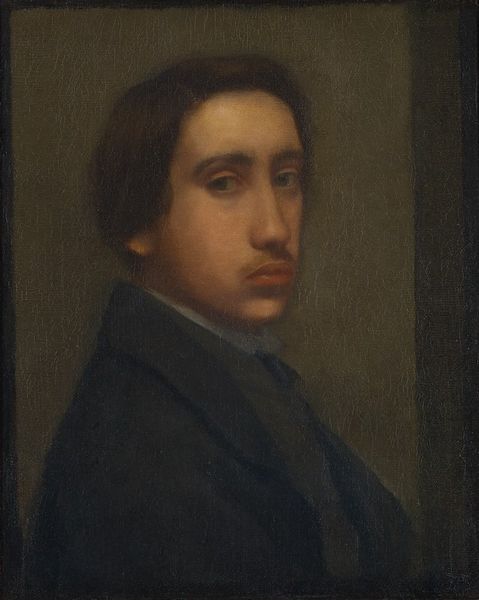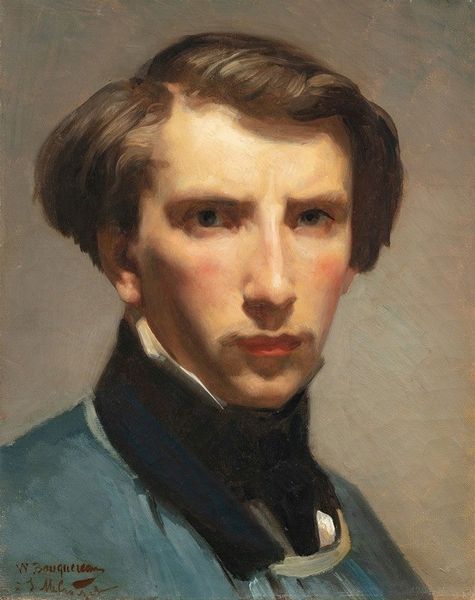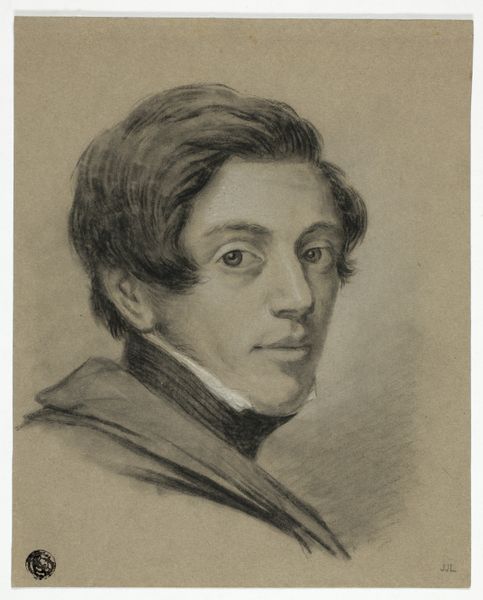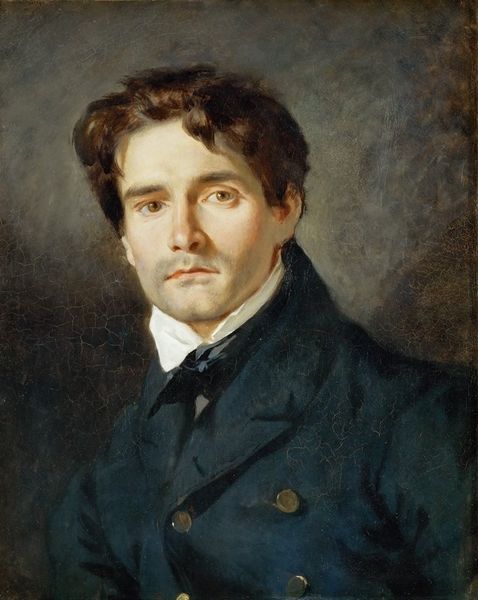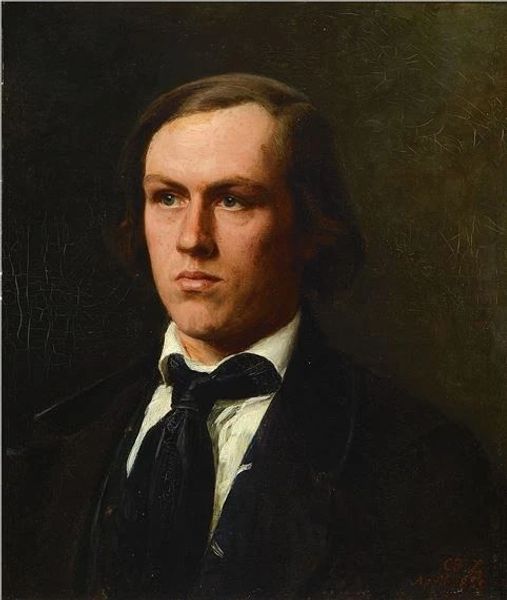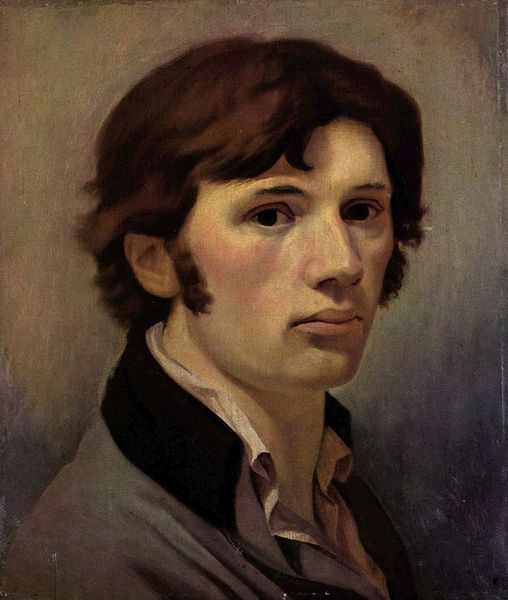
painting, oil-paint
#
portrait
#
figurative
#
portrait
#
painting
#
oil-paint
#
romanticism
#
academic-art
#
realism
Copyright: Public Domain: Artvee
William Bouguereau painted this "Portrait of a Man," likely during the mid-19th century, with oil on canvas. Immediately, we notice its subdued palette and soft, diffused light, creating a sense of intimacy. The composition centers on the subject's face, with its slightly asymmetrical features and direct gaze that invites scrutiny. The subject's face emerges from the dark background, highlighting the artist's mastery of light and shadow, known as chiaroscuro. Notice how Bouguereau employs smooth brushstrokes, which almost dissolve into each other, rendering the forms with remarkable realism. This attention to detail aligns with the academic tradition he embraced, where technical skill and illusionism were highly valued. It is a testament to the enduring power of classical ideals in painting, even as modernism began to challenge these conventions. Through the formal elements of color, light, and form, the portrait conveys a subtle, yet powerful sense of presence and psychological depth.
Comments
No comments
Be the first to comment and join the conversation on the ultimate creative platform.
